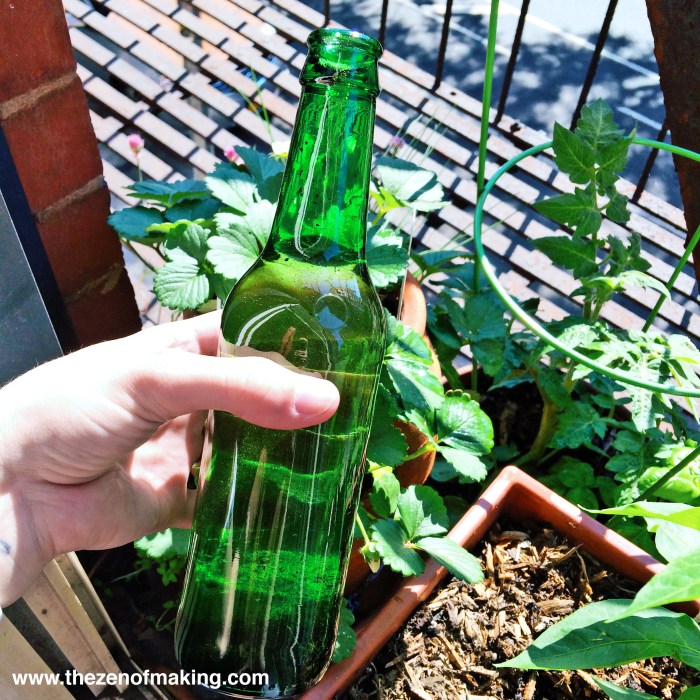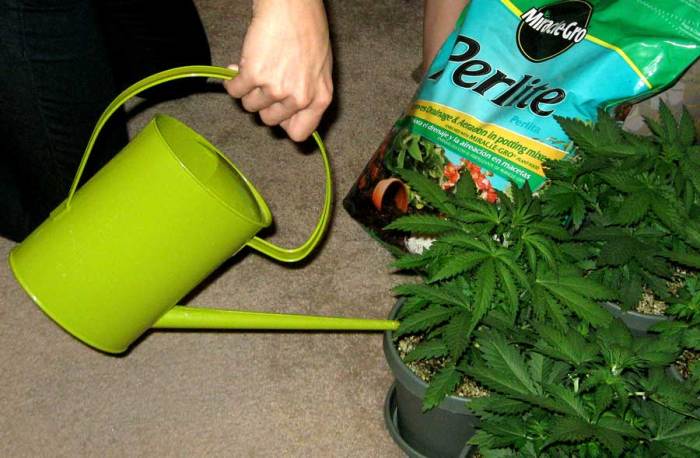Can You Water Plants With Beer?
Beer as Plant Food: A Closer Look
Can you water plants with beer – The idea of using beer to water plants might seem unconventional, even whimsical. However, beer’s composition contains several elements that could potentially benefit plant growth. This article explores the viability of using beer as a plant fertilizer, weighing its potential benefits against its drawbacks and offering sustainable alternatives.
Beer’s Composition and Plant Needs

Source: redhandledscissors.com
Beer, primarily composed of water, malted barley, hops, and yeast, offers a complex mixture of nutrients. While it contains carbohydrates, proteins, and minerals like potassium and magnesium – all beneficial to plants – it also contains alcohol and potentially high levels of acidity, which can be detrimental. Compared to balanced commercial fertilizers, beer lacks the precise ratios of macronutrients (nitrogen, phosphorus, potassium) and micronutrients essential for optimal plant growth.
Its nutrient profile is inconsistent depending on the beer type.
The alcohol content in beer is a significant concern. High concentrations of alcohol can dehydrate plant roots, damaging their ability to absorb water and nutrients. This can lead to stunted growth, wilting, and even plant death. Furthermore, the pH of beer varies widely depending on the type. Some beers are highly acidic, which could significantly alter the soil pH, negatively affecting nutrient availability for plants.
| Beer Type | Approximate pH | Potential Impact on Soil pH |
|---|---|---|
| Lager | 4.0 – 4.5 | Could increase soil acidity, potentially hindering nutrient uptake. |
| Stout | 4.0 – 4.8 | Similar to Lager, increased acidity is a concern. |
| IPA | 4.5 – 5.5 | Moderately acidic, the impact on soil pH is less drastic than darker beers. |
| Wheat Beer | 4.0 – 5.0 | Varied acidity, depending on the specific brewing process. |
Watering Plants with Beer: Methods and Procedures

Source: tasteofhome.com
Applying beer to plants involves two main methods: direct watering and foliar spraying. Direct watering involves pouring diluted beer directly onto the soil around the plant base. Foliar spraying involves misting diluted beer onto the leaves. It’s crucial to use a highly diluted solution to minimize the negative effects of alcohol and acidity.
A step-by-step procedure for direct watering would include: 1) Dilute beer with water at a ratio of 1:10 (one part beer to ten parts water). 2) Gently pour the diluted solution onto the soil, ensuring it reaches the roots but avoids direct contact with the plant’s stem. 3) Water the plant as usual after applying the diluted beer. Plants tolerant to slightly acidic conditions might respond better, but avoiding sensitive plants like acid-sensitive ferns or those preferring alkaline conditions is essential.
Visual Guide for Applying Diluted Beer: Imagine a small potted plant. Pour the diluted beer solution slowly and evenly around the base of the plant, approximately 2-3 inches away from the stem, creating a small ring of moist soil. Avoid getting the solution on the leaves or the plant’s stem itself. This method minimizes the risk of root burn or fungal diseases.
Effects of Beer Watering on Plant Growth, Can you water plants with beer
The short-term effects of beer watering might include a slight increase in plant vigor due to the available nutrients. However, long-term effects could be detrimental, potentially leading to root damage and inhibited growth. Darker beers, with higher nutrient content, might initially show a slightly more positive effect compared to lighter beers, but the high alcohol content remains a significant risk factor.
- Plants watered with beer: May show initial growth improvement followed by potential stunting due to alcohol toxicity.
- Plants watered with plain water: Consistent and healthy growth without the risks associated with beer.
Hypothetical Data: A study (hypothetical) comparing plant height after 4 weeks showed plants watered with a 1:20 beer dilution grew slightly taller (10%) initially, but at 1:10 dilution, growth was significantly stunted (-20%) compared to the control group (plain water). This highlights the importance of proper dilution.
Alternatives to Beer for Plant Watering
Numerous household substances offer safer and more effective plant nutrition. Compost tea, diluted seaweed extract, banana peels (rich in potassium), eggshells (calcium source), and diluted coffee grounds (nitrogen) are readily available and environmentally friendly alternatives.
| Alternative | Nutrient Content | Application Method |
|---|---|---|
| Compost Tea | Balanced nutrients, beneficial microbes | Watering |
| Seaweed Extract | Micronutrients, growth hormones | Foliar spray or watering |
| Banana Peels | Potassium | Soil amendment |
| Eggshells | Calcium | Soil amendment |
Compost tea preparation involves steeping composted organic matter in water for several days. This creates a nutrient-rich liquid teeming with beneficial microorganisms, promoting soil health and plant growth. It’s a natural and sustainable alternative that avoids the potential risks associated with using beer.
Environmental Considerations

Source: growweedeasy.com
Using beer as a plant fertilizer raises environmental concerns. Disposing of leftover beer can contribute to water pollution, and the alcohol content can harm beneficial soil microorganisms. Attracting pests due to the sugary content of beer is another risk. Sustainable alternatives, such as compost tea and other organic amendments, are environmentally responsible choices that enhance soil health and minimize waste.
Examples of environmentally responsible practices include using rainwater for irrigation, composting kitchen scraps and yard waste, and practicing crop rotation to maintain soil fertility. These practices promote biodiversity and minimize the environmental impact of plant care.
Watering plants with beer is a surprisingly common question, though the results are debated. While the small amounts of nutrients might offer a slight benefit, it’s crucial to consider the alcohol content. A better alternative might be using nutrient-rich water, such as exploring whether is cucumber water good for plants , before resorting to beer. Ultimately, plain water remains the safest and most effective option for healthy plant growth.
Helpful Answers: Can You Water Plants With Beer
Does the type of beer matter when watering plants?
Yes, different beers have varying pH levels and nutrient profiles. Darker beers generally have a higher nutrient concentration but also a lower pH, potentially impacting soil acidity.
Can I use beer on all types of plants?
No. Many plants are sensitive to alcohol and changes in soil pH. It’s best to test on a small portion of a plant before widespread application.
What if I accidentally over-water my plants with beer?
Flush the soil with plenty of clean water to dilute the beer and prevent root damage. Monitor the plant closely for signs of stress.
Is it safe to use leftover beer from a party to water plants?
While possible, it’s best to dilute it significantly and avoid using beer that has gone bad or contains additives. Fresh beer is preferable.




















